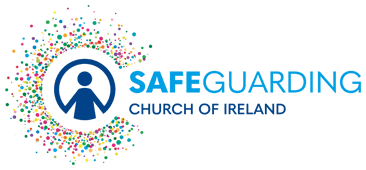ROI Child Safeguarding
PART 1: INTRODUCTION AND CONTEXT
POLICY STATEMENT
“IT IS THE POLICY OF THE CHURCH OF IRELAND TO SAFEGUARD ALL CHILDREN SHARING IN ITS MINISTRY AND TO PROTECT THEM FROM ALL FORMS OF HARM AND ABUSE.”
AIM
The Church of Ireland believes that children should never experience abuse of any kind. Everyone has a responsibility to promote the welfare of all children and to keep them safe. The Church of Ireland is committed to implementing procedures and practices with the aim of safeguarding all children and protecting them from harm. This commitment is outlined in the Child Safeguarding Statement.
The primary aim of Safeguarding Trust (2018): The Church of Ireland Child Safeguarding Policy is
to ensure that the welfare of children sharing in its ministry is of paramount importance. The policy aims to provide clear direction to all those who work with children in the Church of Ireland to enable them to fulfil their responsibilities to provide a safe environment and protect children.
LEGAL CONTEXT
Safeguarding Trust has been developed in line with the following legislation and guidance documents which seek to protect and safeguard children.
- The United Nations Convention on the Rights of the Child (UNCRC).
- Universal Declaration of Human Rights (UDHR).
- European Convention on Human Rights (ECHR).
- Child Care Act 1991.
- Protection for Persons Reporting Child Abuse Act 1998.
- Criminal Justice Act, 2006.
- Criminal Justice (Withholding of Information on Offences against Children and Vulnerable Persons) Act 2012.
- National Vetting Bureau (Children and Vulnerable Persons Act), 2012 – 2016.
- Children First Act 2015.
- Criminal Law (Sexual Offences) Act 2017.
- Children First: National Guidance for the Protection and Welfare of Children 2017 (Department of Children and Youth Affairs).
- Child Protection and Welfare Practice Handbook 2011 (Health Service Executive).
- Child Safeguarding: A Guide for Policy, Procedure and Practice 2018 (Tusla).
GUIDING PRINCIPLES
Thousands of children visit Church of Ireland premises for worship and other social, educational and recreational purposes each week. The Church’s ministry to them is a priority for the Church and it is only possible because of the commitment of adults who are prepared to work with children. Safeguarding Trust: The Church of Ireland Child Safeguarding Policy is designed to protect and to enhance that ministry.
Safeguarding Trust: The Church of Ireland Child Safeguarding Policy is designed to enable all parties within the Church of Ireland to fulfil their proper responsibilities within this ministry:
- To create a safe environment which will promote healthy and fulfilling participation of children in spiritual, educational and recreational activities and minimise the possibility of harm, either deliberate or accidental.
- To encourage safe practices for those who work with children.
- To set out the appropriate responses and procedures in the event of an accident or abusetaking place.
- To safeguard those who work with children from the consequences of unfounded accusations.
The Church of Ireland recognises that:
- the welfare of the child is paramount;
- all children, regardless of age, disability, gender, racial heritage, religious belief, sexual orientation or identity, have the right to equal protection from all forms of harm or abuse;
- some children are additionally vulnerable because of the impact of previous experiences, their level of dependency, communication needs or other issues;
- working in partnership with children, their parents/guardians and other agencies is essential for promoting the welfare of children.
Bishops, clergy, staff and volunteers within the Church of Ireland’s ministry with children are committed to implementing procedures and practices which promote the welfare of children and protects them from harm. The policy, procedures and practice contained in Safeguarding Trust will be reviewed at regular intervals, at least every two years.The Church of Ireland will seek to safeguard children by:
- valuing them, listening to them and respecting them;
- adopting child protection practices through procedures and a code of behaviour for all bishops, clergy, staff and volunteers;
- implementing robust recruitment and selection procedures including required vetting and reference checks;
- providing effective management for staff and volunteers through supervision, support and training;
- reporting concerns to statutory agencies and involving children and parents/guardians appropriately;
- sharing information about child protection and good practice with children, parents/ guardians, staff and volunteers;
- ensuring adherence to safety procedures.
PROMOTION OF SAFEGUARDING TRUST
Safeguarding Trust provides a framework for those ministering within the Church of Ireland on
how to recognise, respond and report any concerns of any safeguarding nature regarding children. Safeguarding Trust sits alongside the Adult Safeguarding: The Church of Ireland Code of Good Practice and Dignity in Church Life polices to support and protect all those who work in the Church of Ireland as bishops, clergy, staff or volunteers.
The panel notice (template provided in Parish Panel Information section) and the Child Safeguarding Statement should be prominently displayed in each of the Church’s premises and readily available online and everyone involved in the Church and its activities should receive or have access to a copy of the Safeguarding Trust policy document.
Information leaflets on Safeguarding Trust shall also be made available to staff/volunteers, parents/ guardians, children and select vestry members.
GLOSSARY
Child means a person under 18 years excluding a person who is or has been married as set out in section 2 of the Child Care Act 1991.
Staff means anyone with a formal contract of employment who is employed and paid by a parish, a diocese, the RCB, or any other Church of Ireland organisation to undertake relevant work or activities relating to children. (see www.sg.ireland.anglican.org).
Incumbent – In addition to the ordinary meaning of ‘incumbent’ within the law of the Church
of Ireland (being a beneficed member of the clergy), the term shall, for the purposes of the implementation of this policy also include licensed clergy, or other officiating clergy (such as Clergy with Permission to Officiate), lay ministers (such as a Church Army Officer), who are in charge of
a parish, including those temporarily in charge during a vacancy in an incumbency. The term shall not include a deacon serving in an internship.
Clergy or Member of the Clergy shall, unless otherwise specifically provided, mean a deacon or priest of the Church of Ireland or of a church in full communion with that Church serving in or retired from ministry of the Church of Ireland: beneficed, licensed or with Permission to Officiate.
Volunteer means anyone engaged by a parish, a diocese, the RCB, or any other Church of Ireland organisation in a position of responsibility towards children or assisting with a group or organisation providing activities involving children, or care or supervision of children, and who is not paid for this involvement.
Panel means the parish representatives appointed to oversee the implementation of Safeguarding Trust: The Church of Ireland Child Safeguarding Policy in the parish or those appointed to discharge the same function at diocesan or central events. The panel fulfils the role of Designated Liaison Person/s.
Parish shall, in addition to the ordinary meaning of the term, include groups or unions of parishes, cathedrals (whether a parish or not), trustee churches, and also other non-parochial ecclesiastical units (e.g. church plants) in which a licensed member of the clergy of the Church of Ireland officiates as determined by the bishop and diocesan council.
Mandated Person means those defined in the Children First Act 2015 that have a statutory obligation to report concerns which reach a particular threshold to Tusla and to cooperate with Tusla in the assessment of mandated reports.
Relevant Person means the person appointed by a parish or diocesan body to be the first point of contact in relation to their Child Safeguarding Statement.
Statutory Authorities refers, as the context requires, to Tusla (Child and Family Agency) which is the statutory body responsible for child protection matters and for improving wellbeing and outcomes for children and/or to An Garda Síochána who are empowered under legislation to investigate possible criminal offences.
Select Vestry refers to the select vestry (or select vestries) of parishes and cathedrals howsoever described, and the Trustee body of every Trustee church howsoever described.
Safeguarding Trust refers to Safeguarding Trust: The Church of Ireland Child Safeguarding Policy. Review Board means those appointed by the bishop of the diocese to undertake the risk assessment following the outcome of an allegation against a staff member or volunteer.
RCB or Representative Body refer to the Representative Church Body, located in Church of Ireland House, Church Avenue, Rathmines, Dublin 6, D06 CF67.

